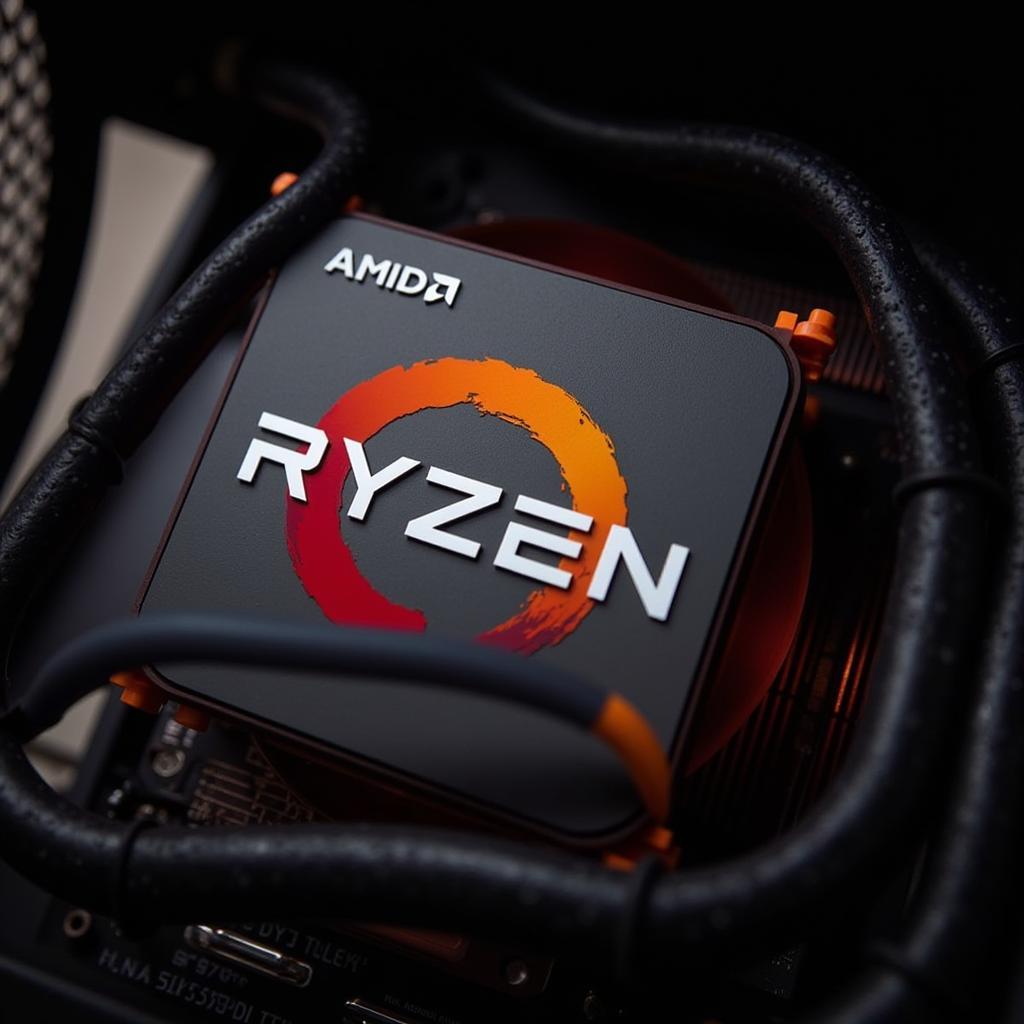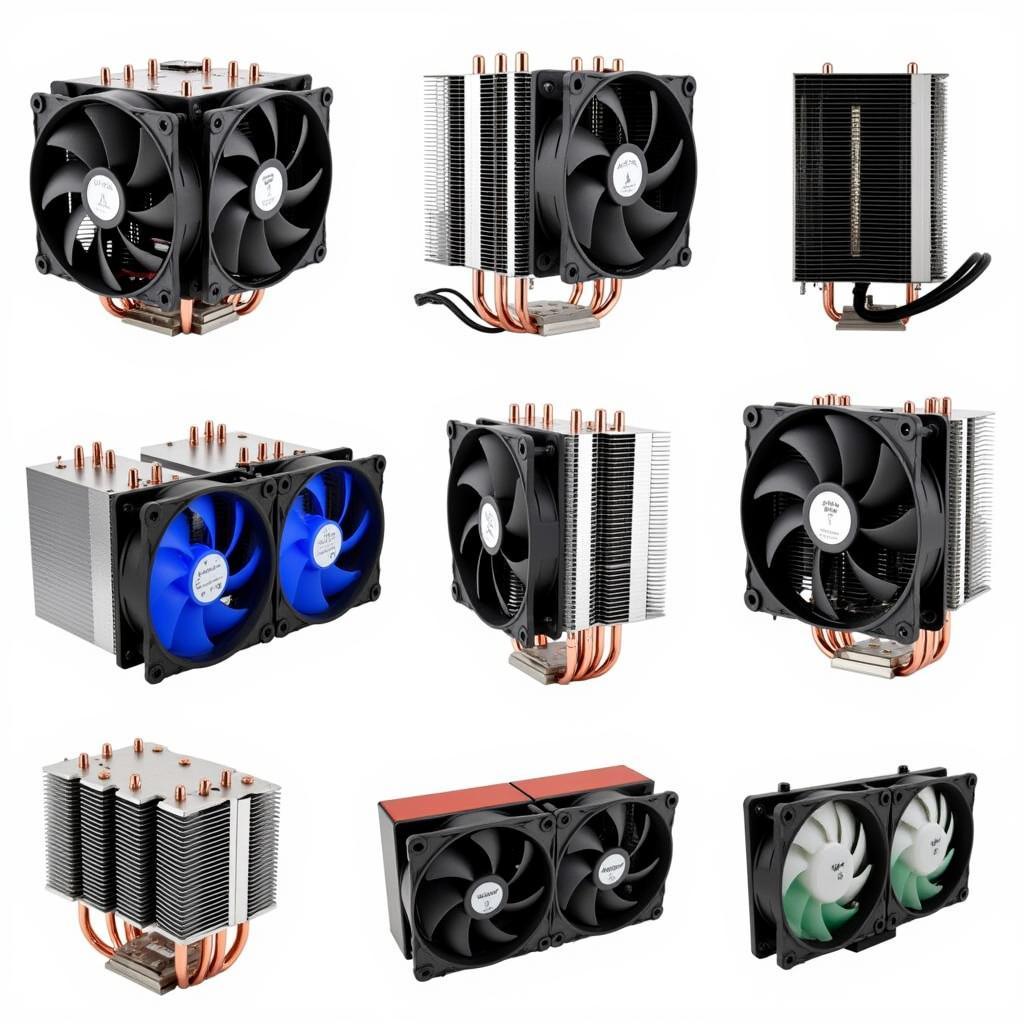The AMD Ryzen 7 3700x is a powerful CPU known for its impressive performance, but many users experience high temperatures, particularly with the stock Wraith Prism cooler. If you’re concerned about your 3700x overheating, you’re not alone. This comprehensive guide will delve into the reasons behind these high temperatures and provide effective solutions to keep your system cool and performing optimally.
Understanding the AMD Wraith Prism and 3700x Heat Generation
Before we jump into solutions, it’s crucial to understand why the 3700x, even when paired with the capable Wraith Prism cooler, can run hot.
- TDP and Core Count: The 3700x, with its 8 cores and 16 threads, has a Thermal Design Power (TDP) of 65W. While not exceptionally high, this TDP, combined with the core-heavy architecture, can lead to significant heat output, especially under heavy workloads.
- Stock Thermal Paste: While the Wraith Prism is a decent cooler, the pre-applied thermal paste might not be the most efficient, leading to slightly higher temperatures.
- Case Airflow: Inadequate airflow within your computer case can trap heat, causing not just your CPU but also other components to run hotter.
 3700x CPU with Wraith Prism Cooler Installed
3700x CPU with Wraith Prism Cooler Installed
Common Causes of High 3700x Temperatures with Wraith Prism Cooler
Several factors can contribute to your 3700x running hot, even with the Wraith Prism cooler. Let’s explore the most common culprits:
- Demanding Applications and Games: Pushing your CPU to its limits with demanding applications like video editing software, 3D rendering programs, or the latest AAA games will undoubtedly generate significant heat.
- Overclocking: While overclocking can squeeze out extra performance, it inevitably leads to increased heat output.
- Dust Accumulation: Over time, dust buildup on the cooler’s heatsink and fan can significantly hinder its cooling efficiency.
- Incorrect Cooler Installation: A loose cooler mounting or improperly applied thermal paste can create poor contact between the CPU and cooler, reducing heat dissipation.
 Monitoring CPU Temperatures Using Software
Monitoring CPU Temperatures Using Software
Effective Solutions for a Cooler 3700x
Now that we understand the potential causes, let’s discuss proven solutions to keep your 3700x temperatures in check:
- Optimize Case Airflow: Ensure your PC case has adequate airflow. Consider adding more fans, strategically placed for optimal intake and exhaust. Aim for a balance between positive and negative air pressure.
- Reapply Thermal Paste: Replacing the stock thermal paste with a high-quality aftermarket option can improve heat transfer between the CPU and cooler, leading to lower temperatures.
- Monitor Temperatures: Utilize monitoring software like HWMonitor or Ryzen Master to keep an eye on your CPU temperatures, especially under load.
- Adjust Fan Curves: Customize the fan speed curves in your BIOS or using motherboard software to ensure optimal cooling based on CPU temperature.
When to Consider an Aftermarket Cooler
If you’ve tried the above solutions and still find your 3700x running hotter than desired, an aftermarket cooler might be the answer. Signs you might need an upgrade include:
- Consistently high temperatures even under moderate loads.
- Thermal throttling, where the CPU reduces performance to prevent overheating.
- Excessive fan noise from the Wraith Prism cooler struggling to keep up.
 Various Aftermarket CPU Coolers for Enhanced Cooling
Various Aftermarket CPU Coolers for Enhanced Cooling
Conclusion
Keeping your AMD Ryzen 7 3700x cool is essential for optimal performance and longevity. By understanding the factors contributing to high temperatures and implementing the solutions outlined in this guide, you can ensure your system runs smoothly, even under demanding conditions.


